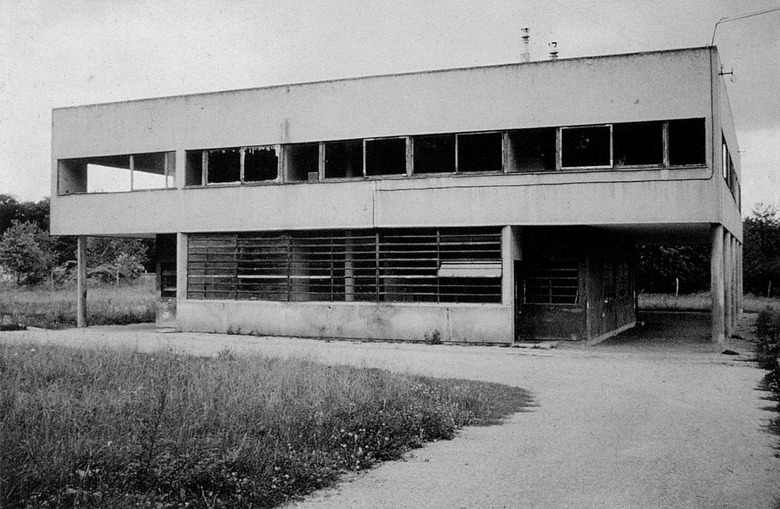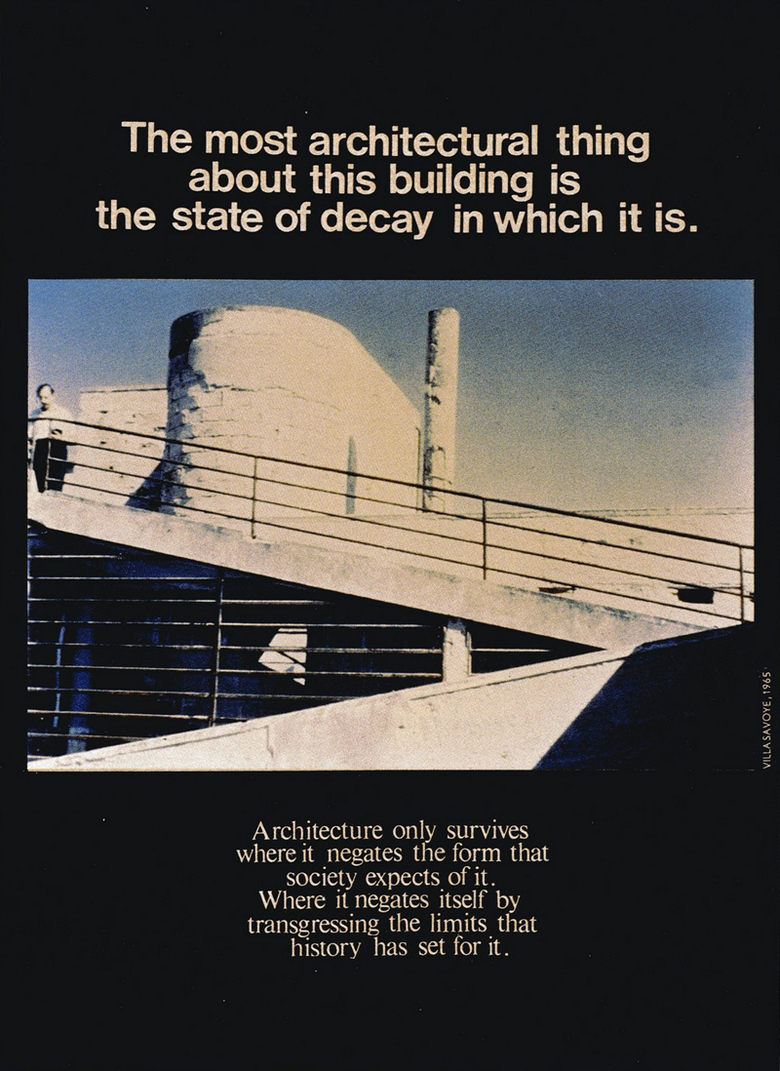Pèlerinage sur la Modernité
The first building in Belgian artist Xavier Delory's Pèlerinage sur la Modernité ("Pilgrimage on Modernity"), which imagines modern architectural masterpieces in states of abandon, is Le Corbusier's Villa Savoye outside Paris.
Through Photoshop, Delory shows the plaster walls flaking and tagged with graffiti, the windows broken and in some cases covered with wood or plastic, and the slender pilotis covered with colored scribbles. Accentuating the ruined state of the villa is the cheery blue sky, the near-perfect, neatly trimmed lawn, and some well-kept flowers near the corners of the building.
Villa Savoye is an interesting first choice for the artist because his manipulations are not far from the reality of the building in the decades after World War II when the Savoye family fled. Subsequent restorations have returned the house to its whitewashed glory, but these do not curtail the potential future Delory imagines.
The Pilgrimage on Modernity to Villa Savoye also harks back to a series of "Advertisements for Architecture" that Bernard Tschumi produced in the 1970s. In one of them, below, he states: "The most architectural thing about [the Villa Savoye] is the state of decay in which it is." For both Tschumi and Delory, Le Corbusier's building represents much more than just his Five Points for a New Architecture; it is a symbol of modern architecture's rise and therefore is bound to be also a symbol of its downfall.



